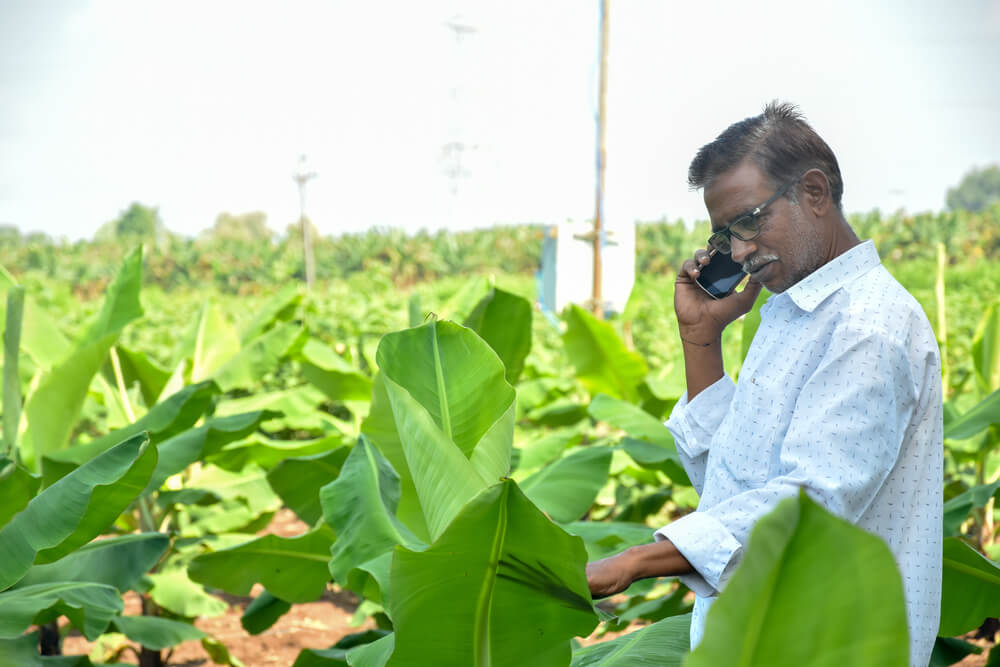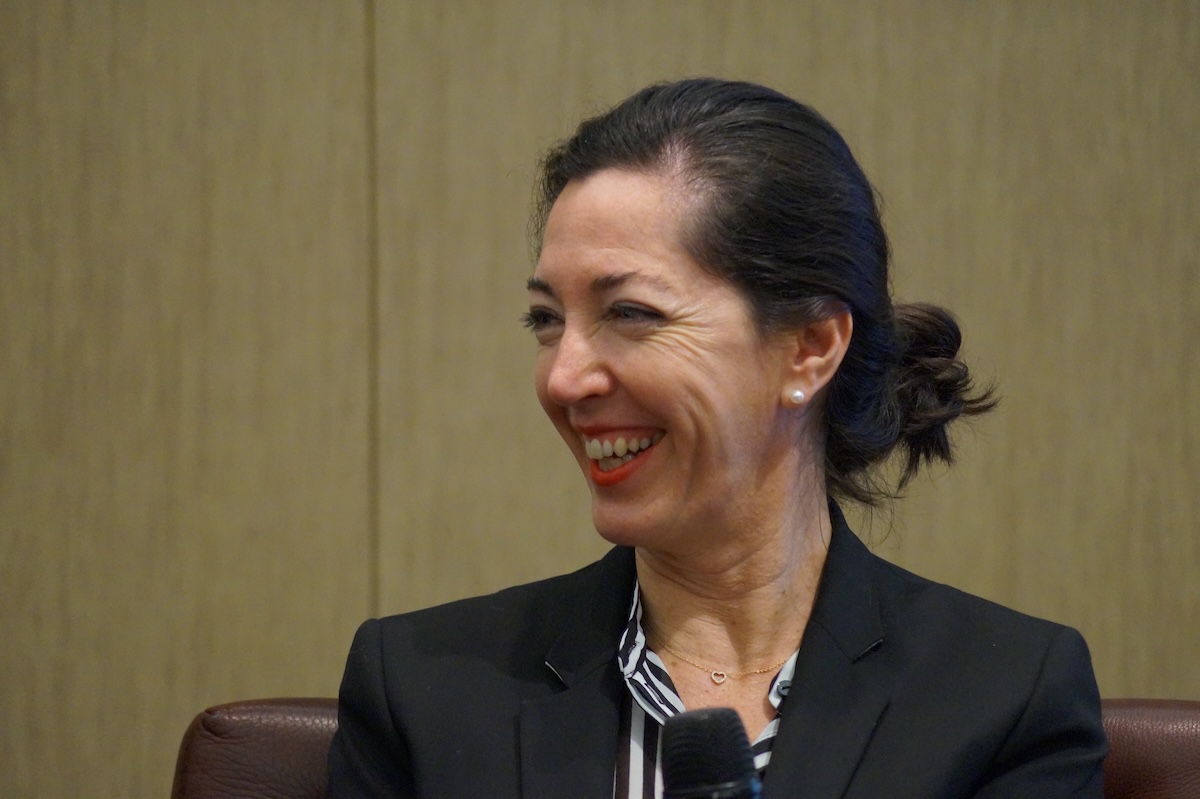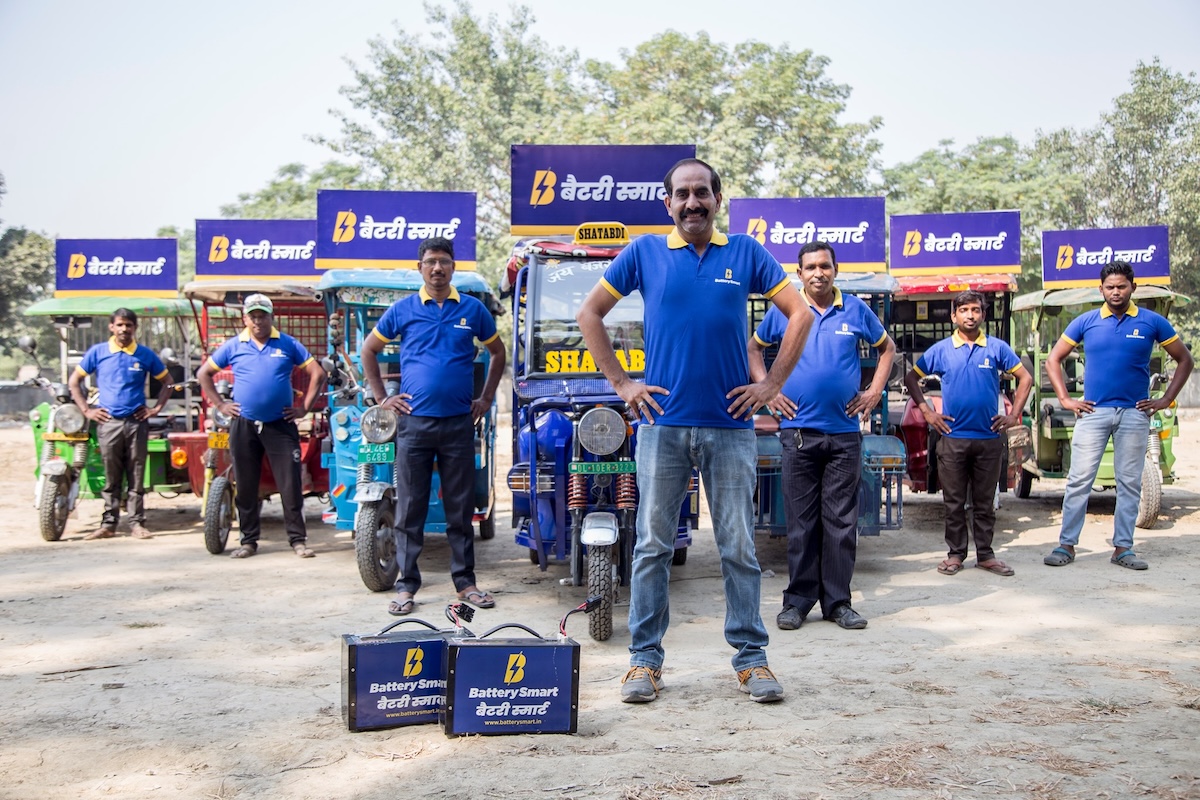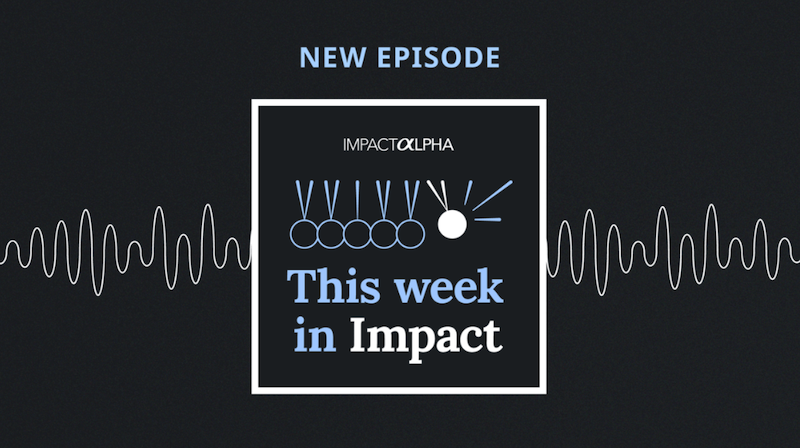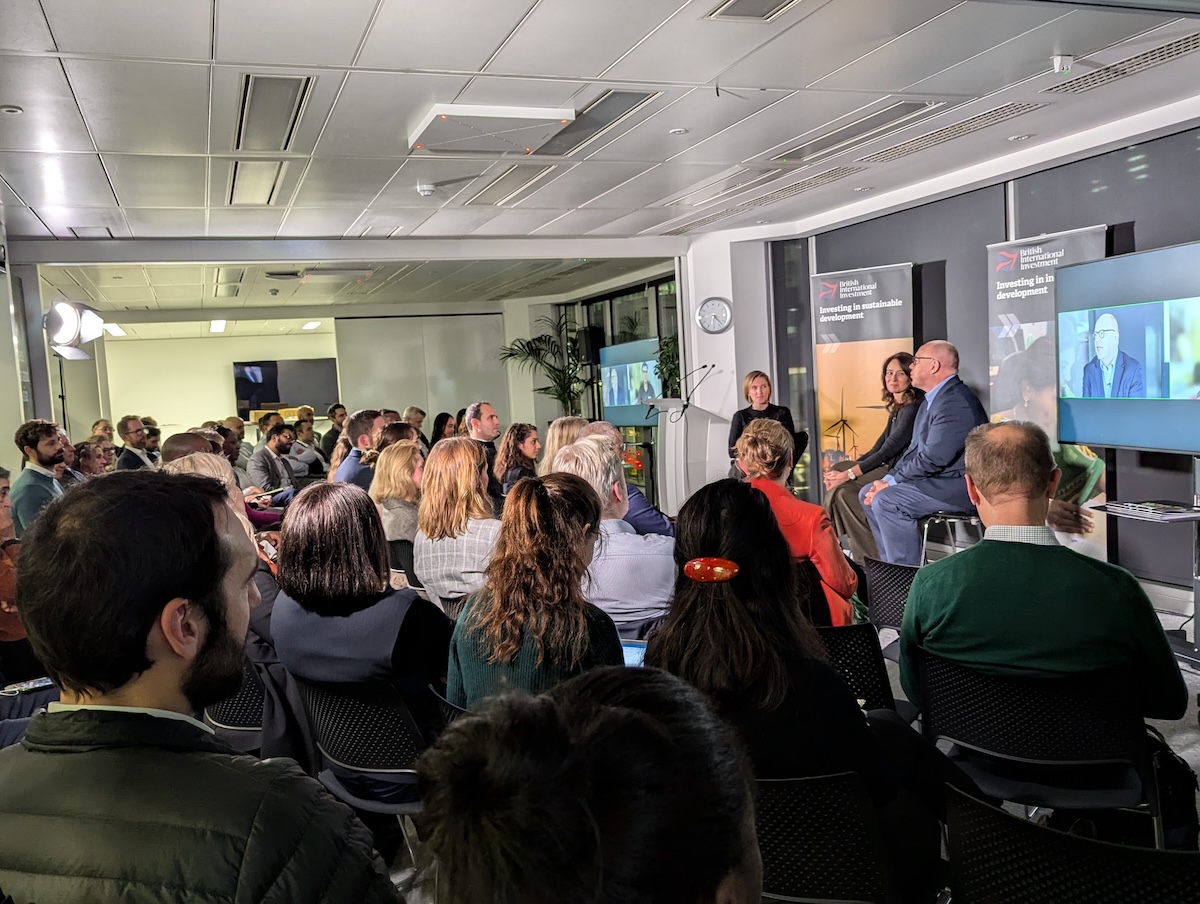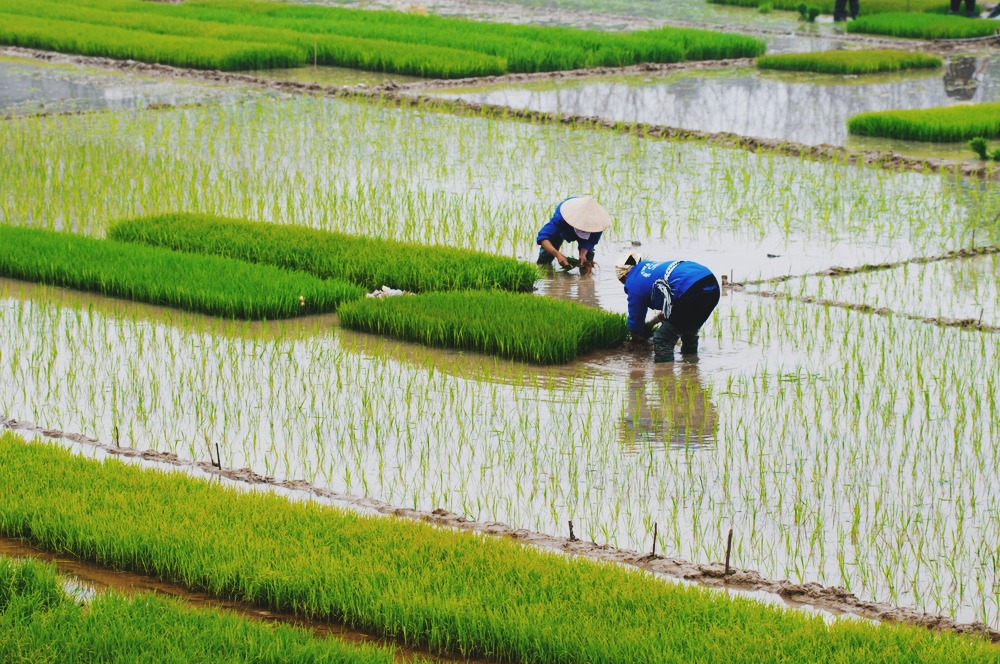ImpactAlpha, April 18 – Borrowers and beneficiaries financed by the World Bank are buckling under the weight of expensive debt, fragile post-Covid economies, inflation and climate change.
The World Bank’s annual spring meeting in Washington, D.C. last week came at an inflection point for the bank, which is undergoing a leadership change, and for the markets it serves.
“People are sober. The tone is serious,” said Shamina Singh of Mastercard’s Center for Inclusive Growth. Singh was in Washington for the Center’s own summit—a “global inclusive growth” convening in partnership with the Aspen Institute that Singh said was a solutions-focused complement to the big-picture discussions at the World Bank’s meetings down the road.
“We have to take off our public-sector or private-sector hats and acknowledge that we all live on the planet and in the service of the planet,” she told ImpactAlpha. “It’s going to take all of us using the assets that we control and making sure we’re operating as a collective and pulling the right levers.”
One of those levers: catalytic philanthropic capital that can be used to uncover, pilot and derisk new models and channels for financial inclusion and resilience.
Under Singh’s leadership, Mastercard’s philanthropic hub has disbursed more than $350 million in grants to organizations driving global financial inclusion. A 2019 grant to the impact investor Accion of $15 million has enabled access to financial products and services for 13 million people and 5.5 million small businesses in emerging markets. The partners surpassed their goal of 10 million people despite the pandemic by focusing on digital financial service providers.
“Now Accion has an investment fund that doesn’t rely on philanthropic capital from Mastercard. It’s attracting investors because our philanthropy de-risked the model,” said Singh. “That’s the purpose of philanthropy in our view—it’s part of a capital stack. We did the hard work of de-risking the model so that the fund can keep going on its own.”
The Center and Accion are now partnering on a second initiative—one that will focus on a growing fintech sector: embedded finance. Increasingly logistics companies, agricultural services firms and others are extending financing to their customers, including small businesses, gig workers and farmers. The partners are hoping to reach 10 million people and another 5.5 million small businesses over the next four years. Women’s financial inclusion will be a key focus.
Finding, de-risking and priming new inclusive finance models to scale has taken on greater urgency since the pandemic, said Accion’s Michael Schlein.
“The world has changed a lot. Who is financially excluded has changed. A billion people have gained some form of financial services access, but two billion people are still left out or underserved,” Schlein said. “We’re trying to seize the moment.”
Singh and Schlein spoke with ImpactAlpha on the sidelines of the Washington convenings about the next phase of their partnership, as well as opportunities and risks in emerging financial technologies, and their hopes for the World Bank under new leadership.
ImpactAlpha: Describe the mood in Washington.
Michael Schlein: The governments of the world, and in emerging markets specifically, are stretched thin coming out of the pandemic. We see that the World Bank and International Monetary Fund are quite worried about potential defaults.
Shamina Singh: People are sober. The tone is serious. We have to take off our public-sector or private-sector hats and acknowledge that we all live on the planet and in the service of the planet. We have to move from silos to solutions. It’s going to take all of us using the assets that we control and making sure we’re operating as a collective and pulling the right levers.
ImpactAlpha: That seems to be the crux of the partnership between Mastercard’s Center for Inclusive Growth and Accion. How does your work together demonstrate, as Shamina said, moving from silos to solutions?
Schlein: The vision for the first grant in 2019 was to digitally transform institutions in order to reach 10 million people who were financially excluded. A year later, the pandemic hit, and we had to rethink everything. We ended up surpassing our original goal, reaching 13 million people and 5.5 million small businesses. But that wouldn’t have been possible without a partner working so closely with us.
Not only did we reach that many people, the data last year showed that their usage of financial products and tools quadrupled, proving that these are products and tools that are useful on a daily basis in their lives.
We’re now leveraging those lessons learned for the second grant.
The world has changed a lot since 2019. Who is financially excluded has changed. A billion people have gained some form of financial services access, but two billion people are still left out or underserved. We see that with smallholder farmers in particular. But there is a lot of innovation happening to reach farmers—agtech, insurance tech, the use of embedded finance.
Embedded financing is really exciting. In the past, at a fund level, we’ve worked with financial services providers to deliver financial services. In this new chapter, we’ll be working with logistics companies and other platforms to embed financial services. It’s a big shift. That’s what we’ll be working on over the next four years.
Inputs and logistics
ImpactAlpha: We at ImpactAlpha have been covering the emergence of embedded finance, including many examples from Accion’s own portfolio. Can you highlight an example or two of how it actually works and what’s promising from an impact standpoint?
Schlein: There’s a company in India, Agrim, that is ambitiously trying to simplify supply chains for smallholder farmers.
A farmer in India now has to get inputs from a lot of different places and suppliers, most of which are also small businesses. It’s complicated for her to get what she needs.
Then she has to sell her outputs. She needs logistics, transportation and cold storage to do that, which is also complicated [to coordinate].
And then she has to try to get the best price for her products.
Agrim is trying to enable farmers to manage all of that from an app on their phones. With this program, we would be able to help take that to a much greater scale.
Singh: To go a step further, Mastercard has a social enterprise within the company called Farm Pass that was built specifically to address farmers’ payment needs. FarmPass could join up with Agrim to help farmers not only get the best prices that make the payment exchange, so that the farmer doesn’t even have to leave her farm to get her product to market. She’d be able to do everything digitally.
That’s the idea behind the partnership. We’re working together to surface models that work. Accion has an incredible network of financial services providers, and Mastercard has the tech rails [to reach] those who have been financially excluded.
ImpactAlpha: The pandemic was such a catalyst for digital financial services and now embedded finance. What’s your perspective, Shamina, from the standpoint of such a large financial services company? What should established financial players be paying attention to?
Singh: When we first started this partnership [with Accion] in 2019, it was pre-Covid. In the early days of the pandemic, Accion saw very quickly that if you’re not operating digitally, you’re going to have a hard time surviving.
I remember that Accion convened a call early on, and a financial service provider from China was on the call with others from India, Latin America and other markets. Because China was a few months ahead in the pandemic than everyone else, the provider in China shared how [others] elsewhere could manage processes with farmers.
In that moment I recognized why multinational companies like Mastercard should be working with multinational NGOs. I can’t imagine what would have happened if we hadn’t had that call. Things would have been a lot harder. This is the reason you have multi-year, multi-sector partnerships.
Catalytic capital
ImpactAlpha: Explain the role philanthropic capital has to play in the fast-evolving, highly innovative world of financial technology.
Schlein: Our partnership is building on the same vision of using philanthropy to explore and derisk new models and then take them to commercial scale.
If you think back to microfinance, it was first done on a nonprofit basis and then scaled using commercial markets. A similar thing has happened in the last decade or so with fintech. Fintech for inclusion was first risky and untested and now it’s getting to scale.
Now our focus is the digital transformation. We’re exploring a new world of embedded finance and platforms to reach people we haven’t reached before, and then we hope to take that to scale.
Singh: With grant one, we created a model. Now, Accion has a fund that doesn’t rely on philanthropic capital from Mastercard. It’s attracting investors because our philanthropy derisked the model. That’s the purpose of philanthropy in our view—it’s part of a capital stack. We did the hard work of derisking the model so that the fund can keep going on its own.
Now with this second grant, we can derisk another part of the puzzle: meeting small businesses on tech platforms in real time. We’re looking at all of the things that tech platforms provide to small businesses, like new types of finance, that we couldn’t do before because the focus was on digitization.
Investing $30 million in a partnership is only possible with an organization that is flexible and can move quickly, like Accion.
Mastercard is putting the weight of all of our assets behind this partnership—it’s part of our commitment to [financially] include one billion people.
Consumer protection
ImpactAlpha: Given how much new fintech there is, it feels like just about anything can be called “inclusive” if you’re providing product or services through new channels and to new customers. But how do you ensure that the companies and models you’re supporting are being inclusive in a responsible way, particularly those serving vulnerable or historically excluded people?
Schlein: Here’s an example: our first grant is informing our second grant—we’re now focusing more on women.
Many of our fintech companies—and others—are using phone usage as a proxy for credit risk. If you recharge your phone before it runs out, if you top up your airtime before it runs out, you’re thought to be a better credit candidate, for example.
But it turns out, men generally have their own phones while women have the family phone, so women’s phones run out of power and airtime more often. If we design algorithms that are systematically biased against women, then that bias gets amplified, especially when you start using generative AI.
Singh: Accion’s responsible financial principles–that should be the model.
Schlein: The Client Protection Principles [previously the Smart Campaign’s Client Protection Standards] was the first consumer protection campaign for the underserved. We built a lot of [the framework] at the time when microfinance institutions were the primary vehicle for financial inclusion.
Today’s consumer protection is more complicated. If working capital is embedded in a logistics platform, for example, the financial services being offered can be more opaque. It might not be obvious what the interest rates are, or who you call when there’s a problem.
Embedded finance has the ability to accelerate how we reach people, but how we protect vulnerable people while diving into embedded finance, those issues are brand new.
Singh: At Mastercard, we have a set of data principles and AI principles we use for product development because we don’t believe it’s our job to wait for government to protect consumers. It’s all of our jobs to protect consumers. Companies like ours have to be asking what is a principled approach to product design. So we encourage others to adopt our principles, or Accion’s, or to look at other sets of principles. They shouldn’t wait for regulation.
Leadership change
ImpactAlpha: That sort of brings us back around to the bigger macro themes that are underpinning the kind of work the Center and Accion are doing together, and which the impact investing community more broadly is doing.
Schlein: This is an extraordinary moment in human history. Over the last several decades, we’ve seen hundreds of millions of people escape poverty. That trend has reversed in the last two years. Poverty and hunger are going up.
At the same time, we’ve seen a rapid acceleration of digital innovation and adoption.
When you put those trends together, the work that we’re doing with Mastercard is more urgent than ever with an impact potential that’s greater than ever. We’re trying to seize the moment.
ImpactAlpha: I think many – take Mia Mottley of Barbados, is an obvious example – would argue that many large financial institutions, and the World Bank specifically, has exacerbated rather than eased the hardship that vulnerable people and vulnerable economies are facing. There are small hints that these institutions are adapting their responses. Are you optimistic that the World Bank and others, like development finance institutions, will rise to the urgency of the moment?
Schlein: Hopefully the incoming World Bank president [Ajay Banga] will be the right person at the right time to reinvigorate the institution. The poverty agenda and the climate agenda are so intertwined. We need an institution that can lead us. We need the World Bank to rise to this moment.
ImpactAlpha: Banga led Mastercard for a decade. What can we expect from him at the helm of the World Bank?
Singh: Ajay will bring a valuable and different set of tools—private sector tools—to the World Bank.
With his leadership at Mastercard, we experienced a sense of urgency and thoughtful risk-taking. But his motto was “I’ll keep my hand at your back, not in your face.” He’s very curious, sharp and humble in his approach. There are tens of thousands of people working at the Bank who are committed to these issues. When you have that kind of perspective and leadership [come in], someone like Ajay will be able to uncover interesting ideas and projects—things they tried five years ago that should be tried again, or tried in one part of the world that should be transferred.
The institution is not going to change overnight just because there’s a leadership change, but he’ll be able to unlock different kinds of decision-making. That’s what I’m optimistic about.



